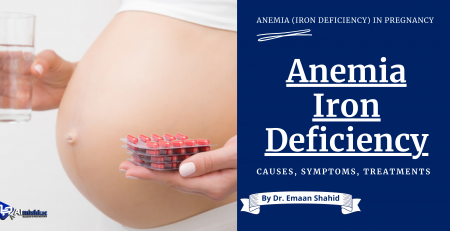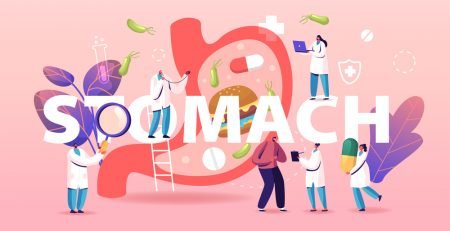Vitamin D: The Sunshine Vitamin
Vitamins are vital for our body’s good health and well-being. Currently, 13 different essential vitamins have been identified. They are needed in small quantities to perform their function. To maintain their health, we must rely on our diet, as most of them can’t be synthesized by our bodies. However, there is a vitamin that our body can produce itself, but it has to take help from the sun. Yes, you got it right. It’s vitamin D, also sometimes known as the “sunshine vitamin.” So in this article, we will address the importance of Vitamin D. By reading this article, you will be able to understand its role in our body, its sources of intake, and what happens to the body in case of a deficiency.

What is Vitamin D?
Vitamin D is an essential fat-soluble vitamin required by our body to perform different functions. This vitamin is considered more of a prohormone than a nutrient because, firstly, our body can convert it into a hormone with the help of the kidney. Secondly, our body can manufacture it by itself in sunlight. So, compared to other vitamins, We just don’t have to rely on dietary sources for its intake.
Vitamin D does not refer to one single vitamin, but its different forms exist. However, for humans, the two most important forms of vitamin D are vitamin D2 (ergocalciferol), which comes from plant sources, and vitamin D3 (cholecalciferol), which comes from animal sources, including humans.
Although vitamin D is mainly known for making your bones more robust, it is also needed for a healthy immune system, heart, digestive system, and reproductive system. It also helps regulate blood sugar and gives your body the strength to resist cancer.
How is Vitamin D Synthesized in your body?
We naturally have a vitamin D3 precursor in our skin, 7-dehydrocholesterol (7-DHC). When our skin is exposed to sunlight, ultraviolet B radiation breaks the B ring of this precursor and transforms it into vitamin D3 (cholecalciferol).
The synthesized vitamin D3 is still not a biologically active form. For its activation, it is first transported to the liver with the help of vitamin D-binding protein (DBP). In the liver, this vitamin D3 is first converted into the circulatory form of vitamin D3, i.e., calcidiol. This step happens with the help of the enzyme 25-hydroxylase (25-OHase), which adds an OH group at position C-25. The Calcidiol level is measured in the blood to determine the level of vitamin D3 in a person.
Then, it is transferred from the liver to the kidneys through blood circulation. The second hydroxylation takes place at the C1 position with the help of the enzyme one alpha-hydroxylase (1 alpha-phase), and it is converted into its active form, called calcitriol.
What are the Sources of Vitamin D?

Sunlight
The primary source of vitamin D is sunlight; our bodies can make all the vitamin D they require in the presence of sunlight. However, in winter and colder regions, it becomes difficult to obtain only the required levels of vitamin D from sunlight, and we have to rely on other sources of vitamin D.
Food Sources
Only a small number of dietary sources contain vitamin D. These include
- Animal sources that contain the D3 form of vitamin D. These include
- Fatty fish like mackerel, salmon, and tuna,
- Beef liver
- Cheese
- Egg yolk
- Plant sources that contain the D2 form of vitamin D, such as certain mushrooms.
- Sometimes vitamin D is added to certain products. This process is called fortification. Examples of fortified products are orange juice, cereals, soy milk, and some dairy products.
Supplements
Another way to get vitamin D in cases of deficiency is through supplements. Vitamin D supplements are available in both of their forms: plant-based D2 (ergocalciferol) and animal-based D3 (cholecalciferol). D3 (cholecalciferol) is usually preferred as it is also naturally produced in our bodies.
What is The Role of Vitamin D in Our Body?

Required for Healthy Bones
The most crucial role of vitamin D in our body is to make our bones healthy and strong. It plays this role by improving the absorption of calcium and phosphorus in the gut, which are vital for bone mineralization, and making them stronger.

In cases of calcium deficiency in the blood, the parathyroid gland triggers and releases a parathyroid hormone ( PTH). PTH causes the release of stored calcium from the bones and transports it to the blood, thereby weakening the bones. Vitamin D helps maintain the calcium level in the blood by enhancing the absorption of calcium from the gut and kidney and thus prevents the release of too much parathyroid hormone and ultimately helps your bones to retain the calcium.
Required for Good Oral Health.

Calcium is vital for protecting and strengthening the outer covering (enamel) of your teeth. As vitamin D’s primary function is to increase the absorption of calcium and phosphorus in the body, it helps maintain the good health of your teeth. Vitamin D also strengthens the body’s immune system and hence plays a vital role in preventing different oral infections.
Good for Body Immunity
According to research, it is proven that vitamin D plays a vital role in body immunity. Therefore, it not only helps our immune system fight infections but is also helpful in preventing autoimmune disorders such as rheumatoid arthritis, multiple sclerosis, etc. Different studies have shown that vitamin D helps in autoimmune disease by controlling the body’s immune response and reducing specific markers of inflammation, although further research is required.
Help in Controlling Type 2 Diabetes

Vitamin D is also helpful in controlling type 2 diabetes by enhancing the body’s sensitivity to insulin. It is suggested by a study that Vitamin D helps the pancreas to regulate the production of insulin and thereby reduces the risk of type 2 diabetes.
Good for your Brain and Memory

Research shows that vitamin D has neuroprotective properties as its receptors are found throughout the brain. It is also helpful in reducing the risk of Alzheimer’s disease by decreasing the buildup of proteins (beta-amyloid plaques) responsible for Alzheimer’s disease. It also acts as an antioxidant and prevents the nervous tissues from oxidative stress, hence improving the brain’s cognitive function.
Good for your Heart
Some studies suggest that lower levels of vitamin D in the body are associated with cardiovascular problems, including hypertension and heart failure. The exact cardioprotective mechanism of vitamin D is still not known. Still, it’s thought that it may be due to its anti-inflammatory properties, impact on the renin-angiotensin system, inhibitory effect on smooth muscle proliferation, effects on PTH level, and effects on glycemic control. All of these have a direct effect on cardiovascular health.

Protect your Lungs
Recent research established that vitamin D also plays a vital role in respiratory health. It helps the lungs fight against the infection and prevents the occurrence of allergic conditions such as asthma.

Good for Fertility
Research shows that vitamin D is essential in both male and female fertility. In Males, the role of vitamin D is linked with higher motility, count, and survival of sperm. In women, it is proved that there’s a high chance of conceiving if the vitamin D level in the blood is 30 ng/mL or higher, and it supports a healthy pregnancy.
Help your Body to Resist Cancer:
Research shows that vitamin D also reduces the occurrence and death rate of certain cancers such as colon, breast, and prostate cancer.
Identified by different researchers, vitamin D does certain things, such as decreasing the growth of cancer cells and stimulating apoptosis (cell death), and inhibiting angiogenesis (blood vessel formation in tumors) that helps our body to resist cancer.

What are the Risks and Complications of Vitamin D Deficiency?
Vitamin D deficiency is a widespread health concern around the globe. The normal range of vitamin D is considered 50-80 nmol/L of 25(OH)D in the blood, anything between 30-50 nmol/L is considered insufficient and vitamin D deficiency is diagnosed if the range of 25(OH)D in the blood is less than
30 nmol/L.
Many factors can lead to vitamin D deficiency, such as
- Low exposure to sunlight
- Following a strict vegan diet
- Age factor
- Obesity
- Having a darker skin tone
- Some chronic disorders that affect fat absorption, such as celiac disease and ulcerative colitis
- Kidney or liver dysfunction etc
Vitamin D deficiency is usually associated with two primary disorders of bone, i.e., Rickets in children and Osteomalacia – in adults. It can also lead to other health conditions, such as lower immunity, diabetes, depression, muscle pain and weakness, cancer, high blood pressure, and other heart problems.
Conclusion
Vitamin D plays a vital role in keeping our bodies healthy. Though it is considered a key player in our bone’s health, it is also required by other systems of our body like the immune system, cardiovascular system, reproductive system, nervous system, regulation of blood sugar, and some studies also suggest that it helps our body to fight cancer.
We can avoid the deficiency of this sunshine vitamin in our body by spending some time in the sunlight, choosing a diet with vitamin D-rich food, and, if necessary, considering certified vitamin D supplementation.
References:
Vitamin D: All you need to know!
Which Foods Are High In Vitamin D?
In-defense-of-vitamin-D: The Facts You Need to Know












LEAVE A COMMENT
You must be logged in to post a comment.